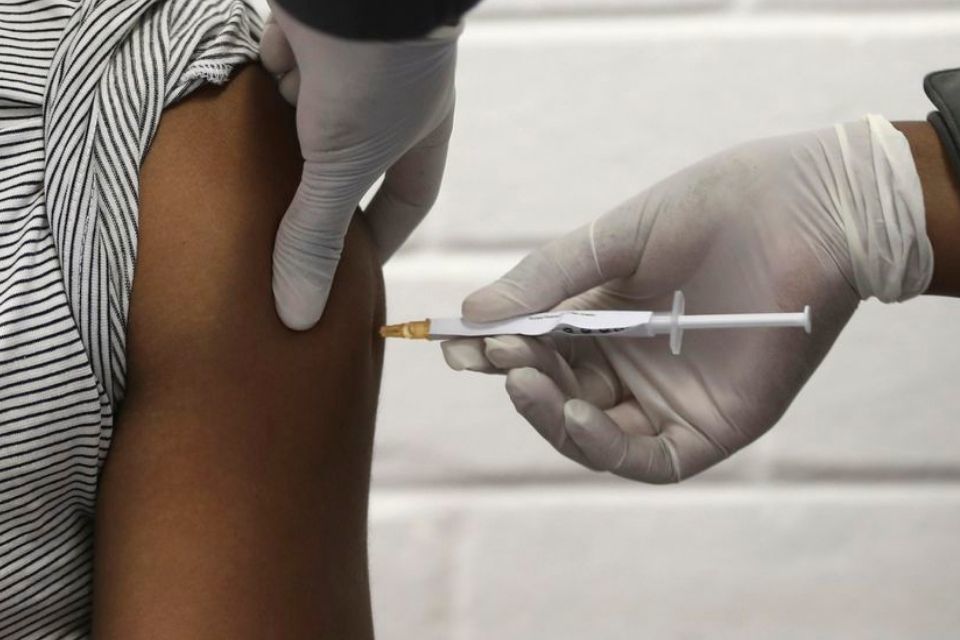
Vaccines trials in Chile and the UK’s role to tackle the pandemic
Published By GOV.UK [English], Tue, Nov 10, 2020 5:52 AM
Open editorial by Ian Duddy, British Ambassador to Chile
There is no doubt that this pandemic requires a global response. So, collaboration among countries has become crucial in all our efforts to overcome this generation- defining crisis. In this context, it is great news that Phase III trials for the University of Oxford/AstraZeneca COVID-19 vaccine will take place in Chile, and an excellent example of the type of collaboration we need, with seven countries (the UK, the United States, Brazil, South Africa, Chile and Peru), contributing with clinical tests implementation and scientific experience.
The UK has been doing all in its power to support vaccine development and, importantly, to support the fair distribution of future vaccines. Through the UK’s Vaccine Taskforce, the British government is providing money and support, including over $169 million to the University of Oxford and Imperial College London to develop new vaccines. The UK has also pledged $2.1 billion over the next five years to Gavi, the Global Vaccine Alliance, and is one of the largest donors to the World Health Organisation.
On 30 September, the UK’s Foreign Minister co-hosted an important event on vaccines at the UN General Assembly, to champion and promote the Covax Facility, which the UK and Chile have both joined. Covax is a fund where members pool together their financial resources, and with that large pot of money, deals are then struck with a large variety of vaccine producers. That way, more countries get access to more vaccines. During the General Assembly Prime Minister Johnson announced an extra $640 million in funding to support low-income countries to participate in Covax.
Nevertheless, it is not only vaccines where we should be concentrating our attention, or exploring opportunities for UK-Chile partnerships. Treatments, diagnostics, and further scientific research must all form part of the international approach. That is why the UK has contributed funds to the COVID-19 Therapeutics Accelerator and the Foundation for Innovative New Diagnostics. In the UK, the Recovery Platform is trialling a host of treatments, whilst various biotech and Artificial Intelligence firms have developed rapid COVID-19 tests that will hopefully allow the safe reopening of the global economy.
British researchers continue world-leading analysis of the virus. One example is the COG-UK Consortium, made up universities and public health bodies, which is leading work to sequence and analyse the virus genome, helping us to understand better its transition and evolution.
I know that Chile also understands the importance of a holistic response to the crisis. The Ministry of Science’s “Fondo de Investigación Científica Covid-19”, for example, is supporting important research across a range of subjects.
In all these areas, there is scope for the UK and Chile to work together. Conversations are underway, for example, between COG-UK and its Chilean equivalent “el Consorcio Genomas CoV2” about information sharing. UK and Chilean universities, supported by the British Embassy, are also working together to explore health innovations, such as the use of disinfection tunnels.
Chile has much to offer. For example, COVID-19 has been shown to survive significantly less time on copper surfaces than on stainless steel or plastic equivalents. Copper has anti-microbial anti-viral properties, and Chilean researchers have been world-leaders in helping us to understand copper’s potential to kill the virus. Chilean firms – such as Copperprotek, Copper3D, and Vetromas – have in turn been developing new products to harness copper’s health potential.
The clinical role of copper in the fight against the virus is still being understood. Therefore the British Embassy has established a Copper Covid Taskforce, bringing together Chilean and British experts to share ideas and research.
Innovations along these lines will not be the defining achievement in this global struggle. However, they are important examples of nations coming together in the face of adversity. Collaboration between the UK and Chile on the Oxford/AstraZeneca vaccine is a positive step forwards in our joint fight against COVID-19.
Contact
If you want to know more about the international UK response to tackle the COVID-19 pandemic, please contact the Communications Office.
Further information
For more information about the activities of the British Embassy in Santiago, follow us on:
Flicker
Press release distributed by Media Pigeon on behalf of GOV.UK, on Nov 10, 2020. For more information subscribe and follow